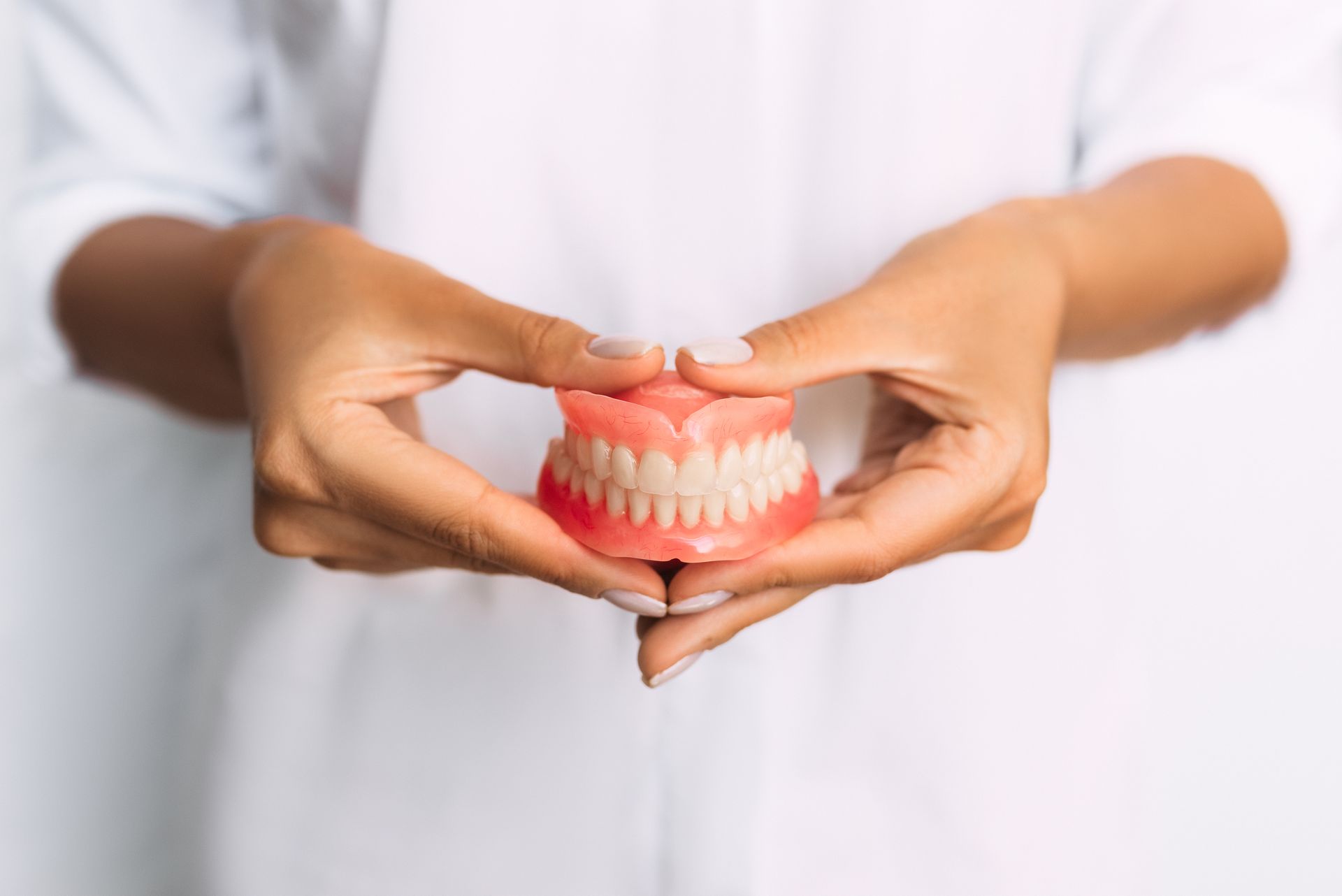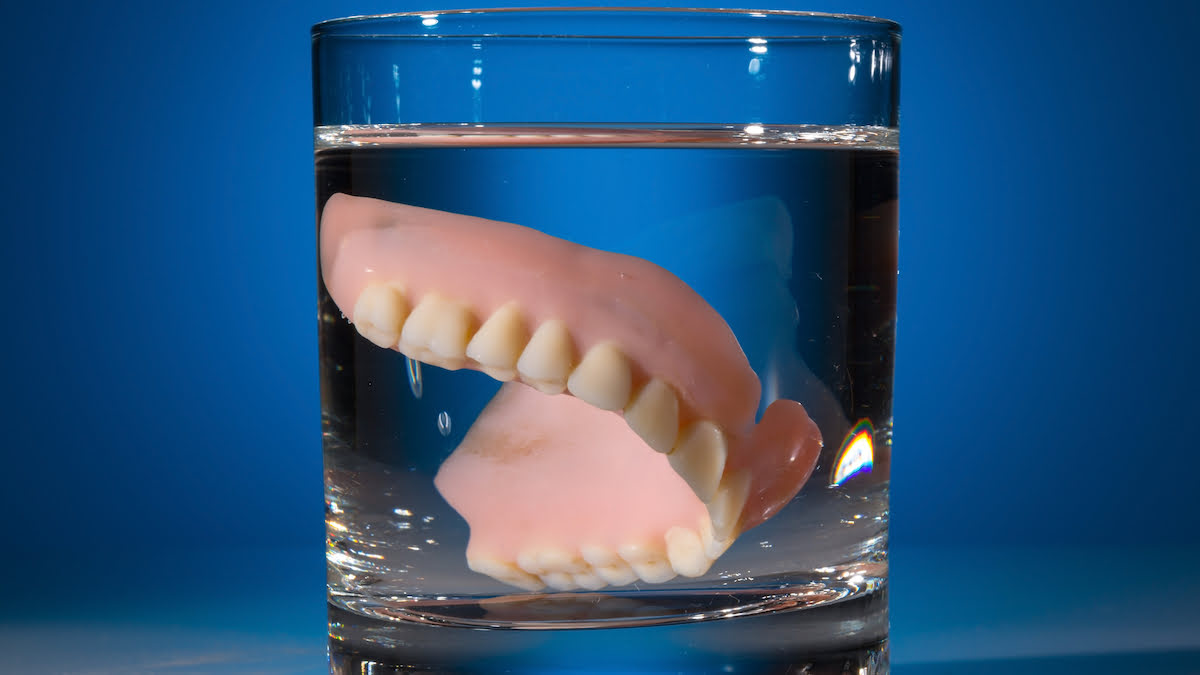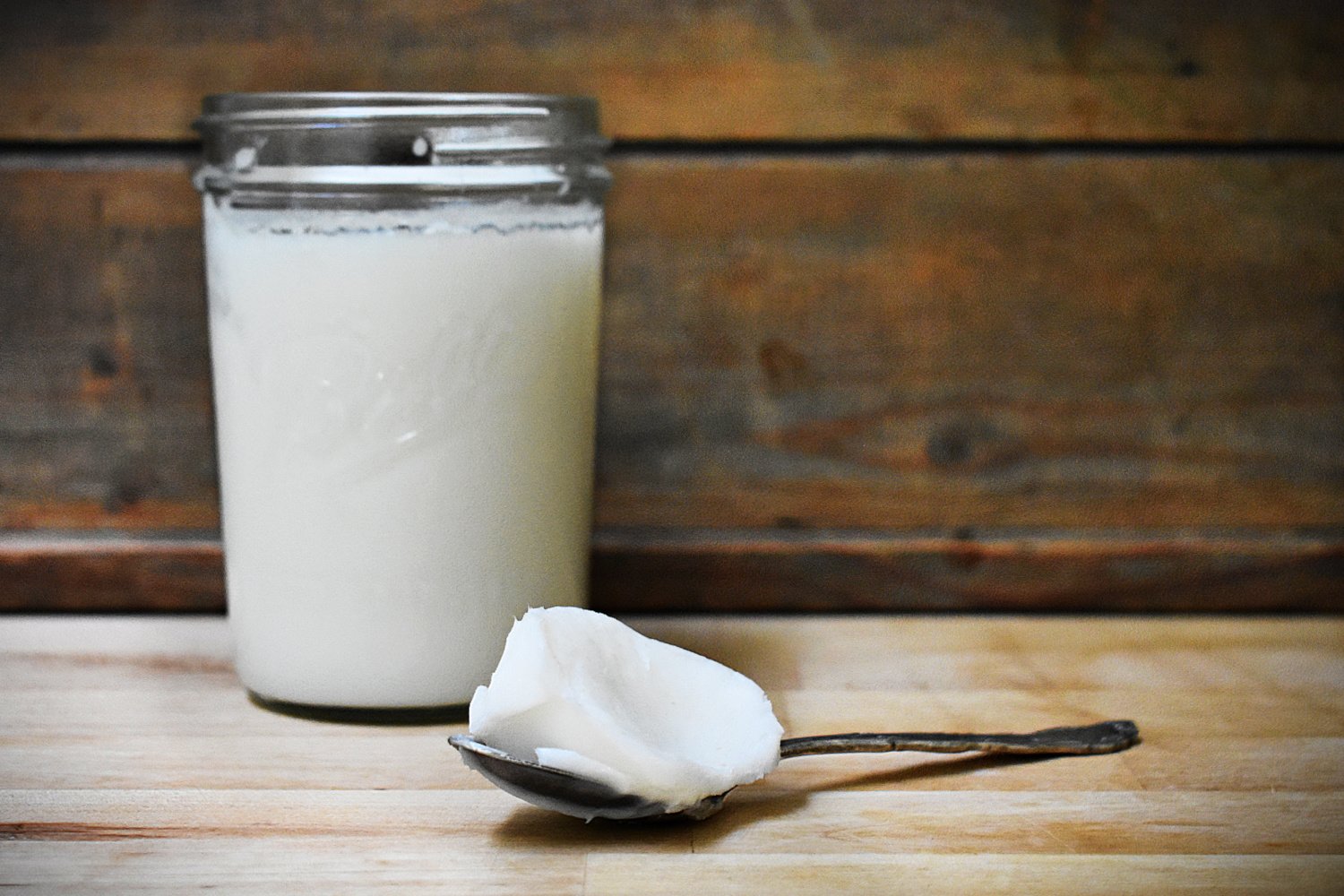

Articles
How To Store Dentures Long Term
Modified: February 11, 2024
Learn the best ways to store your dentures long term with our informative articles. Keep your dentures protected and clean for extended use.
(Many of the links in this article redirect to a specific reviewed product. Your purchase of these products through affiliate links helps to generate commission for Storables.com, at no extra cost. Learn more)
Introduction
When it comes to taking care of your dentures, proper storage is just as important as regular cleaning and maintenance. Whether you’re a new denture wearer or have been using them for years, knowing how to store dentures long-term is essential to preserve their function and longevity.
Proper denture storage not only helps keep your dentures safe and protected, but it also prevents bacterial and fungal growth, warping, and damage. In this article, we will explore the best practices for storing dentures and provide you with helpful tips and strategies to ensure their long-term durability.
One of the first steps in maintaining your dentures is to establish a consistent cleaning routine. Before storing your dentures, it is crucial to clean them thoroughly to remove any food particles, stains, or debris. Use a soft-bristle toothbrush and a mild denture cleanser to gently brush all surfaces of the dentures. Avoid using abrasive cleaners or toothpaste, as they can potentially damage the denture material.
After cleaning your dentures, rinse them thoroughly under running water to remove any residue from the cleanser. It is important to ensure that there is no lingering cleaning solution on the dentures, as this can cause irritation or discomfort when you wear them.
Now that your dentures are clean, it’s time to choose the right storage container. It is recommended to keep your dentures moist when they are not being worn, as this helps prevent them from drying out and becoming brittle. Avoid storing them in dry environments or leaving them exposed to direct heat or sunlight, as this can cause warping or distortion.
There are several options for denture storage containers. One popular choice is a denture case, which is specifically designed to hold and protect dentures. Denture cases often come with a built-in soaking tray that allows you to soak your dentures in a denture cleaning solution overnight. Make sure to choose a case that has proper ventilation to allow air circulation and prevent moisture buildup.
Another option is to use a denture soak solution or a denture cleaning tablet. These products are designed to effectively clean and sanitize dentures while they are being stored. Simply place the dentures in a container filled with the solution or drop a tablet into a glass of water and let the dentures soak overnight. Remember to follow the manufacturer’s instructions for the correct usage and storage guidelines.
Avoid storing your dentures in a cup or container without any solution, as this can lead to bacterial or fungal growth. Additionally, storing them in a tissue or napkin can result in accidental damage or loss. Always opt for a designated denture storage container for optimal protection.
Key Takeaways:
- Proper denture storage is essential for maintaining functionality, cleanliness, and longevity. Thorough cleaning, moisture balance, and choosing the right storage container are key to preserving the quality of dentures.
- Regular maintenance, including daily brushing, inspection, and professional check-ups, is crucial for prolonging the life of dentures and ensuring optimal oral health. Proper care not only maintains the prosthetic but also contributes to overall well-being.
Read more: How To Store Dentures
Proper Denture Cleaning
Proper denture cleaning is essential to maintain the hygiene and longevity of your dentures. Regular cleaning helps remove food particles, plaque, and stains, ensuring that your dentures stay fresh and comfortable to wear. Here are some tips for effective denture cleaning:
- Remove your dentures and rinse them under running water after every meal to remove any food debris. This helps prevent the buildup of bacteria and plaque.
- Use a soft-bristle toothbrush specifically designed for dentures. Regular toothbrushes can be too abrasive and may damage the denture material. Apply a mild denture cleanser and gently brush all surfaces of your dentures, including the gums, teeth, and any attachments.
- Avoid using regular toothpaste to clean your dentures. Toothpaste is too harsh and can cause scratches on the denture surface. Opt for a denture cleanser that is specifically formulated for denture care.
- Make sure to clean all the nooks and crannies of your dentures, including the spaces between the teeth. Plaque can easily accumulate in these areas, leading to bad breath and potential oral health problems.
- After brushing, rinse your dentures thoroughly under running water to remove any residue from the cleanser. It is crucial to ensure that there is no cleaning solution left on your dentures, as it can cause irritation or discomfort when you wear them.
- To enhance the freshness and cleanliness of your dentures, consider soaking them in a denture cleaning solution or using denture cleaning tablets. These products are specifically formulated to remove stubborn stains, kill bacteria, and eliminate odors. Follow the instructions provided by the manufacturer for proper usage and soaking times.
- Always handle your dentures with care to avoid accidental dropping or damage. Fill the sink with water or place a soft towel on the countertop when you clean your dentures to cushion any potential impact.
Remember to clean your mouth and gums thoroughly after removing your dentures. Use a soft toothbrush and toothpaste to brush your gums, tongue, and any remaining teeth. This helps maintain good oral hygiene and prevents oral health issues.
In addition to daily cleaning, it is recommended to schedule regular visits to your dentist for professional denture cleaning and examination. A professional cleaning can help remove any tough stains or buildup that regular brushing may not effectively eliminate.
By following these proper denture cleaning practices, you can ensure that your dentures remain clean, fresh, and comfortable to wear, while also promoting your overall oral health.
Choosing the Right Storage Container
When it comes to storing your dentures long-term, selecting the right storage container is crucial. The container you choose should provide adequate protection, keep your dentures moist, and prevent any damage. Here are some factors to consider when choosing a denture storage container:
- Size and Fit: Ensure that the container is large enough to comfortably hold your dentures. It should allow the dentures to rest in a natural position without being tightly squeezed or crowded together.
- Design: Look for a container that has a snug-fitting lid to prevent dust, debris, and insects from coming in contact with your dentures. A secure lid also prevents accidental spills or opening of the container.
- Ventilation: Opt for a storage container with proper ventilation. Adequate airflow helps prevent moisture buildup, which can lead to bacterial or fungal growth. Ventilation also helps to keep the dentures fresh and odor-free.
- Material: Choose a storage container made of a durable and hygienic material. Plastic containers are commonly used for denture storage as they are lightweight, easy to clean, and non-reactive with denture materials. Avoid containers made of fragile or porous materials that may crack or absorb odors.
- Additional Features: Some storage containers come with additional features like a built-in soaking tray or a denture brush holder. These features can be convenient and help streamline your denture care routine.
Many denture cases on the market offer all these qualities and are specifically designed to provide optimal storage for dentures. Look for a denture case that meets your needs and preferences. You may choose a case with vibrant colors or a design that reflects your personal style.
Alternatively, if you prefer a DIY option, you can also use a glass or plastic container with a tight-fitting lid. Make sure to clean the container thoroughly before using it for denture storage.
Regardless of the type of container you choose, it is essential to keep your dentures moist when they are not being worn. Avoid storing them in a dry environment, as this can cause them to become brittle and prone to cracking. Dentures should also be protected from direct heat or sunlight, as this can lead to warping or distortion.
By carefully selecting the right storage container, you can ensure that your dentures are well-protected, moisturized, and in good condition for long-term storage.
Denture Storage Solutions
When it comes to storing your dentures, there are several solutions you can consider to keep them safe, clean, and in optimal condition. Here are some denture storage solutions to consider:
- Denture Cases: Denture cases are specifically designed to hold and protect dentures when they are not being worn. These cases often come with a secure lid and a built-in soaking tray. They provide a convenient and hygienic option for storing your dentures. Denture cases are available in various sizes and designs, allowing you to choose one that suits your preferences.
- Denture Soak Solutions: Denture soak solutions are designed to clean and sanitize dentures while they are being stored. These solutions come in liquid form and are used by placing the dentures in a container filled with the solution. Denture soak solutions often contain active ingredients that help eliminate bacteria, stains, and odors. Follow the manufacturer’s instructions for the correct usage and soaking times.
- Denture Cleaning Tablets: Denture cleaning tablets are another popular option for denture storage. These tablets are dissolved in water to create a cleaning solution. Dentures are then soaked in the solution overnight, allowing the tablets to effectively clean and sanitize the dentures. Denture cleaning tablets are convenient, easy to use, and often provide a thorough clean.
- Simple Homemade Solutions: If you prefer a more affordable and DIY approach, you can create a homemade denture storage solution. One option is to use a glass or plastic container with a tight-fitting lid and fill it with a denture soak solution, a mixture of water and a mild denture cleanser, or plain water. Remember to change the solution daily and rinse the dentures thoroughly before wearing them.
- Travel Cases: If you frequently travel or need to carry your dentures with you, consider getting a travel case specifically designed for dentures. These cases are compact, lightweight, and often come with a secure closure to prevent any damage during transportation.
No matter which denture storage solution you choose, it is important to properly clean your dentures before storing them. Removing any food particles or debris helps prevent bacterial growth and preserves the integrity of your dentures.
Remember to follow the manufacturer’s instructions for proper usage and maintenance of the denture storage solutions you choose. Regularly clean and replace your storage containers, as they can become breeding grounds for bacteria if not properly maintained.
By utilizing these denture storage solutions, you can ensure that your dentures are stored safely and hygienically, promoting their longevity and functionality.
Store dentures long term by keeping them in a denture cleaning solution or water when not in use to prevent them from drying out and warping. Keep them in a safe, dry place away from direct sunlight and heat.
Avoiding Common Mistakes in Denture Storage
Proper denture storage is essential to maintain the quality and functionality of your dentures. However, there are common mistakes that people often make when storing their dentures, which can lead to damage or hygiene issues. Here are some common mistakes to avoid:
- Not Cleaning Dentures Before Storage: One of the biggest mistakes is failing to clean your dentures before storing them. Food particles, plaque, and bacteria can accumulate on the denture surface, leading to odor, staining, and potential oral health problems. Always ensure to clean your dentures thoroughly before storing them.
- Improper Moisture Balance: Dentures should be kept moist when they are not being worn, as moisture helps prevent them from drying out and becoming brittle. However, excessive moisture can lead to bacterial or fungal growth. Strike a balance by using denture soaking solutions or storing them in a container with a damp cloth or absorbent paper towel.
- Storing Dentures in Dry Environments: Avoid storing your dentures in a dry environment, as this can cause them to dry out and become prone to cracking. Keep them away from direct heat sources and avoid exposing them to sunlight for prolonged periods of time.
- Using Harmful Cleaning Agents: Avoid using abrasive cleaners, regular toothpaste, or bleach to clean your dentures. These agents can damage the denture material, leading to discoloration, scratches, or weakening of the structure. Stick to mild denture cleansers recommended by your dentist.
- Storing Dentures in Tissue or Napkins: Storing your dentures in tissue or napkins is a common mistake that can lead to accidental loss or damage. These materials can easily tear, and the dentures can be misplaced or thrown away accidentally. Always use a designated denture storage container to keep them safe.
- Not Changing the Storage Solution: If you are using a denture soak solution or homemade solution for storing your dentures, it is important to change the solution regularly. Stagnant solution can become a breeding ground for bacteria and compromise the hygiene of your dentures.
- Not Properly Securing the Storage Container: Make sure to securely close the lid of your denture storage container. This prevents dust, debris, and insects from coming in contact with your dentures. A loose or open container increases the risk of damage or contamination.
By avoiding these common mistakes and following proper denture storage practices, you can ensure that your dentures remain in good condition, hygienic, and comfortable to wear.
Regular Denture Maintenance
In addition to proper cleaning and storage, regular maintenance is essential to keep your dentures in optimal condition. Here are some important steps to include in your regular denture maintenance routine:
- Inspect Your Dentures: Regularly examine your dentures for any signs of damage, wear, or loose parts. Check for cracks, chips, or broken areas. If you notice any issues, consult your dentist for necessary repairs or adjustments.
- Brush Your Dentures Daily: Just like natural teeth, dentures need to be brushed daily to remove plaque, stains, and bacteria. Use a soft-bristle toothbrush or a denture brush specifically designed for cleaning dentures. Choose a mild denture cleanser and gently brush all surfaces of your dentures, including the gums, teeth, and any attachments.
- Handle Your Dentures with Care: When cleaning or handling your dentures, make sure to do so over a soft surface or a basin filled with water. This helps cushion any accidental drops and minimizes the risk of damage. Avoid using excessive force or bending the clasps or attachments, as this can lead to breakage or misalignment.
- Soak Dentures Overnight: Allow your dentures to soak overnight to keep them clean and fresh. Use a denture soaking solution recommended by your dentist or denture cleaning tablets to effectively remove stains, bacteria, and odors. Be sure to follow the manufacturer’s instructions for proper usage and soaking times.
- Visit Your Dentist Regularly: Regular dental check-ups are crucial to monitor the condition of your dentures and address any issues. Your dentist can perform professional cleanings, adjustments, and repairs as needed. They can also assess the fit of your dentures to ensure optimal comfort and functionality.
- Maintain Good Oral Hygiene: Even with dentures, it is important to maintain good oral hygiene. Brush your gums, tongue, and any remaining natural teeth with a soft toothbrush and toothpaste. This helps remove bacteria and prevents oral health problems such as gum inflammation or bad breath.
- Handle Dentures with Clean Hands: Always ensure that your hands are clean before handling your dentures. This helps prevent the transfer of bacteria or other contaminants onto your dentures.
- Avoid Hot Water and Bleach: Hot water can warp or distort denture material, so avoid using hot water for cleaning or soaking dentures. Additionally, do not use bleach or harsh chemicals, as they can damage the denture material or cause discoloration.
By following these regular denture maintenance practices, you can prolong the life of your dentures, maintain their functionality, and ensure optimal oral health.
Conclusion
Proper denture storage is crucial for maintaining the functionality, cleanliness, and longevity of your dentures. By following the best practices outlined in this article, you can ensure that your dentures remain in optimal condition.
Remember to always clean your dentures thoroughly before storing them and choose the right storage container that provides adequate protection and ventilation. Avoid common mistakes such as storing dentures in dry environments, using harmful cleaning agents, or storing them in tissues or napkins.
Regular denture maintenance, including brushing your dentures daily, inspecting them for damage, and soaking them overnight, is key to preserving their quality and hygiene. Additionally, maintaining good oral hygiene and visiting your dentist regularly for check-ups and adjustments will contribute to the overall health of your dentures and your oral cavity.
By adopting proper denture cleaning and storage habits, you can ensure that your dentures remain comfortable, functional, and free from bacteria and odors. Taking care of your dentures is not just for the sake of the prosthetic itself but also for your overall oral health and well-being.
Consult with your dentist for personalized recommendations and guidance on denture care and storage practices. With the right knowledge and diligence, you can enjoy a confident smile and a comfortable denture-wearing experience for years to come.
Frequently Asked Questions about How To Store Dentures Long Term
Was this page helpful?
At Storables.com, we guarantee accurate and reliable information. Our content, validated by Expert Board Contributors, is crafted following stringent Editorial Policies. We're committed to providing you with well-researched, expert-backed insights for all your informational needs.















0 thoughts on “How To Store Dentures Long Term”